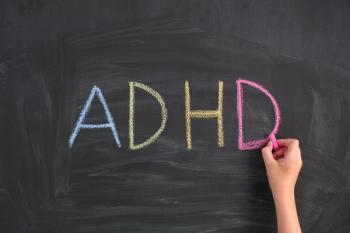
FDA approves nipocalimab-aahu to treat generalized myasthenia gravis
The human FcRn-blocking monoclonal antibody is indicated for gMG patients aged 12 years and older.
On April 30, 2025, the FDA approved nipocalimab-aahu (Imaavy; Johnson & Johnson), a human FcRn-blocking monoclonal antibody, for the treatment of generalized myasthenia gravis (gMG) in adult and pediatric patients aged 12 years and older who are anti-acetylcholine receptor (AChR) or anti-muscle-specific kinase (MuSK) antibody positive, according to a press release from the company.1
The approval follows Priority Review designation and introduces a new treatment option in the FcRn inhibitor class. Nipocalimab-aahu is designed to selectively reduce immunoglobulin G (IgG) autoantibodies—without affecting other components of the immune system—offering targeted disease control in a broad patient population.1
“Today’s FDA approval of Imaavy marks a historic milestone for the more than 240 million patients suffering with autoantibody diseases, many with few or no approved targeted treatments,” said David Lee, MD, PhD, Global Immunology Therapeutic Area Head, Johnson & Johnson Innovative Medicine, in a statement. "This approval is the result of years of scientific commitment, collaboration and determination for our nipocalimab program, and we’re proud to bring this new treatment option to patients living with anti-AChR or anti-MuSK antibody positive gMG," added Lee.1
Data that led to the approval of nipocalimab-aahu
The approval of nipocalimab-aahu was based on results from the ongoing Vivacity-MG3 trial (NCT04951622), the longest primary endpoint study conducted for an FcRn inhibitor in adults with gMG. In this trial, nipocalimab-aahu plus standard of care (SOC) led to superior disease control through 24 weeks, as measured by improvements in Myasthenia Gravis Activities of Daily Living (MG-ADL) scores, compared to placebo plus SOC.1,2
Patients receiving the treatment showed improvements in functions such as chewing, swallowing, speaking, and breathing. These benefits were maintained out to 20 months in the ongoing open-label extension study. Nipocalimab-aahu also demonstrated a rapid and sustained reduction in serum autoantibodies, decreasing IgG levels by up to 75% from the first dose and maintaining those levels over the 24-week observation period.1
In the ongoing Vibrance-MG phase 2/3 pediatric study(NCT05265273), which includes adolescents aged 12–17 years who are AChR or MuSK antibody positive, nipocalimab-aahu plus SOC met its primary endpoint with a 69% reduction in total serum IgG over 24 weeks. The study also met secondary endpoints, including improvements in MG-ADL and Quantitative Myasthenia Gravis (QMG) scores.1,3
Across both studies, the treatment was well-tolerated in both adult and pediatric populations, with a consistent safety profile.1
Broader access and community impact
According to Johnson & Johnson, anti-AChR and anti-MuSK antibody-positive patients represent over 90% of the antibody-positive gMG population. The availability of nipocalimab-aahu for this group brings a targeted therapeutic option to most patients with gMG.1
“We consistently hear from individuals living with myasthenia gravis who are hopeful for new treatment options that may help bring greater stability, independence, and predictability to their lives,” said Samantha Masterson, President and CEO of the Myasthenia Gravis Foundation of America, in the announcement. “Today’s announcement provides another option which could help address the constant uncertainty and heavy physical and mental toll that MG symptom relapse presents to patients and their families.”
Nicholas J. Silvestri, MD, Professor of Neurology at University of Buffalo, added, “Having a treatment that delivers this level of durable symptom stability is a meaningful step forward for managing a complex and unpredictable disease like gMG, and to have it in both AChR+ and MuSK+ adults and pediatric patients 12 years and older brings an additional FcRn treatment to a broader range of patients.”1
Patient access and next steps
Johnson & Johnson has launched IMAAVY withMe, a support program for patients in the United States. Commercially insured individuals prescribed nipocalimab-aahu may be eligible to receive their first treatment within one week and pay as little as $0 per infusion.
Health authority submissions for nipocalimab-aahu are under review in multiple countries, as the company pursues global regulatory approvals.
References:
1. FDA Approves Imaavy (nipocalimab-aahu) for Generalized Myasthenia Gravis. Johnson & Johnson. Press release. April 30, 2025. Accessed April 30, 2025. https://www.jnj.com/media-center/press-releases/johnson-johnson-receives-fda-approval-for-imaavytm-nipocalimab-aahu-a-new-fcrn-blocker-offering-long-lasting-disease-control-in-the-broadest-population-of-people-living-with-generalized-myasthenia-gravis-gmg
2. A Study of Nipocalimab Administered to Adults With Generalized Myasthenia Gravis. ClinicalTrials.gov. Updated April 29, 2025. Accessed April 30, 2025. https://www.clinicaltrials.gov/study/NCT04951622
3. A Study of Nipocalimab in Children Aged 2 to Less Than 18 Years With Generalized Myasthenia Gravis. ClinicalTrials.gov. Updated April 10, 2025. Accessed April 30, 2025. https://clinicaltrials.gov/study/NCT05265273
Newsletter
Access practical, evidence-based guidance to support better care for our youngest patients. Join our email list for the latest clinical updates.






